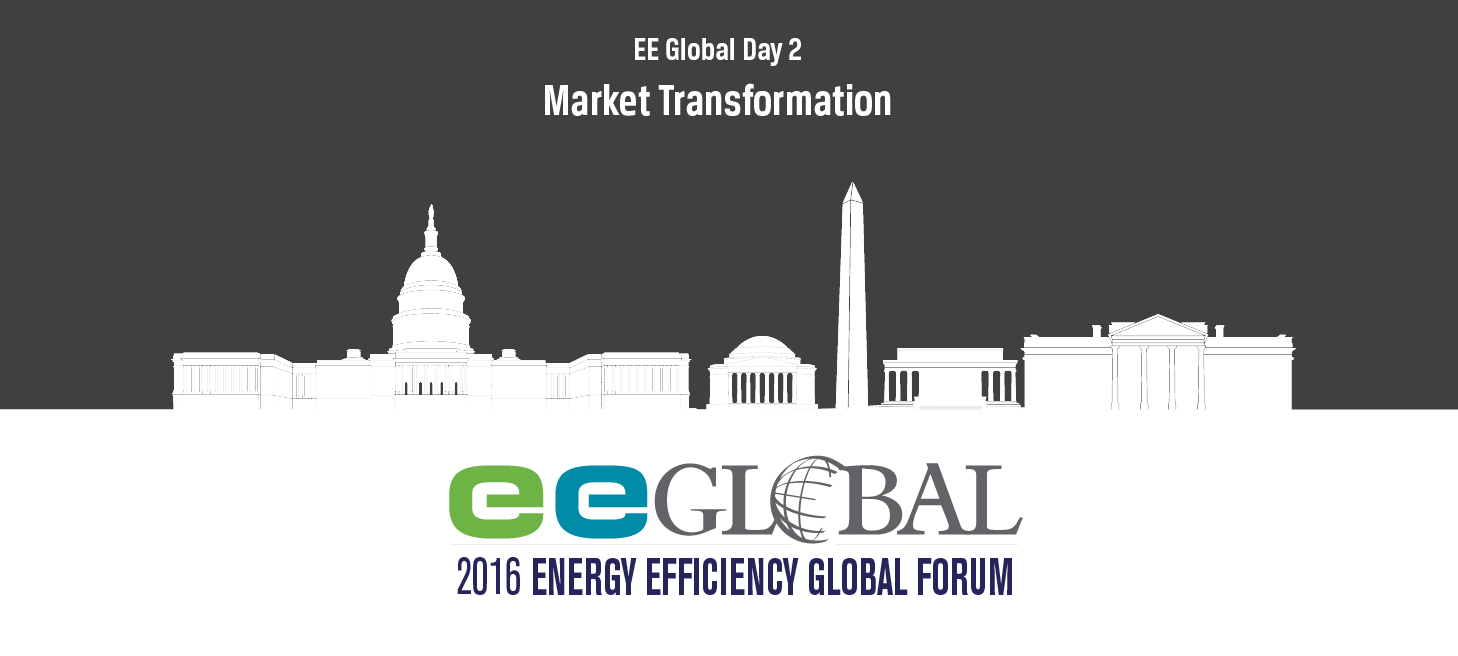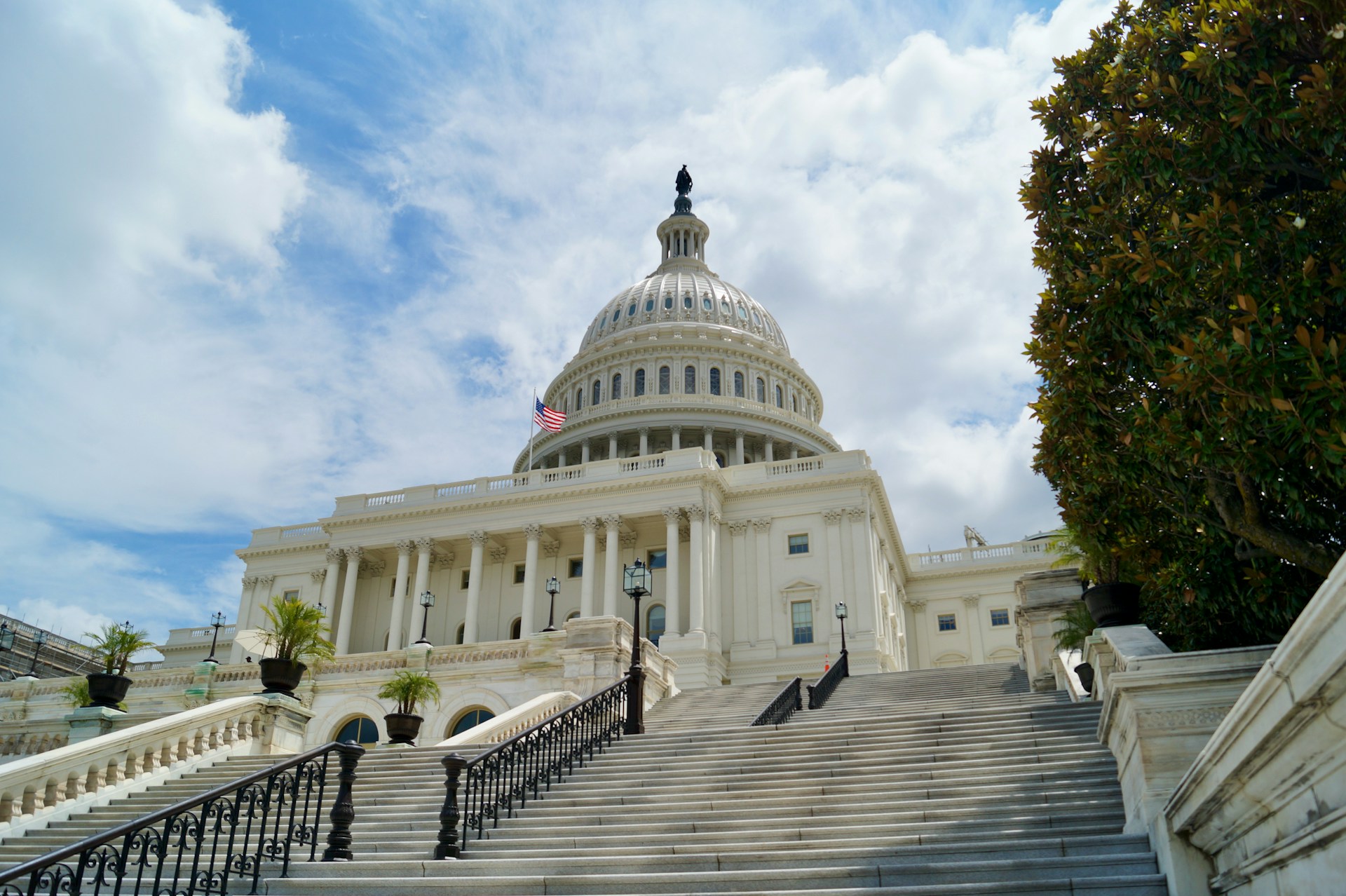Executive Dialogues - Market Transformation - Day 2
Let's Save Energy
Alliance to Save Energy's Blog

Check out today's EE Global Forum highlights for the Market Transformation executive dialogue sessions:
- 3A | Examining the energy-water nexus: How can we scale up efforts to meet the critical need for energy and water efficiency in water infrastructure and end uses?
Ramola Musante, Vice President of Government Relations at Ecolab and Chairwoman of the Alliance’s Energy-Water Nexus Subcommittee, led a great discussion on the energy-water nexus and the policies and projects that will advance energy and water efficiency in water infrastructure systems and end use. Speakers representing the public, private, and utility sectors gave their perspectives on this important topic and landed on a few major takeaways for session participants, namely that the nexus needs more attention, education, and engagement from all decision-makers, and that collaboration between stakeholders is critical.
During the panelists’ remarks, it was made abundantly clear that all parties believe public-private partnerships can help advance and finance projects and the necessary innovations that will continue to drive water savings in industrial processes and consumer end use. During the Q&A session, panelists and participants alike noted the importance of collaboration and communication between experts in the areas of water and energy in driving these innovations. A testament to that effort, Musante and Rob Ivester of the Advanced Manufacturing Office at the U.S. Department of Energy (DOE) both noted that the DOE is working agency-wide to investigate all areas touched by the energy-water nexus and make sure the federal government is working appropriately to coordinate efforts across all sectors. Finally, the last big takeaway discussed during the session was the fact that we need to get people energized and engaged around the energy-water nexus issue like they are about energy efficiency in their homes and businesses.
- 4A | Creating more, using less: How can we leverage continuous improvement and lean processes to double energy productivity in manufacturing?
The industrial and manufacturing sectors are energy-intensive, which means that there is a significant potential to address energy consumption through the adoption of energy efficiency. This session’s panelists outlined several barriers preventing widespread investment in energy efficiency projects as well as great avenues that could help overcome these barriers.
The primary barrier mentioned was the low cost of natural gas. As the primary energy input in these sectors, natural gas is a significant factor towards the cost of production. Panelists discussed that, in this day and age of cheap natural gas prices, at least in the United States, it makes the return on investment time scale too long for most companies to consider. However, cheap prices are not the only thing to consider. In many countries, access to natural gas can be a problem; even with low prices, availability may still be an issue. In this regard, these sectors can reduce the impact of a short term shortage of natural gas on their operations by investing in energy efficiency.
The common theme for what is needed to drive further adoption of energy-efficient practices in these sectors is an effective political or legal framework. Richard Northcote of Covestro made the point that if industry is allowed to waste energy and pour greenhouse gases into the atmosphere and remain viable, there is no incentive to change. Klaus Breil, DENEFF, described a similar situation within the European Union (EU). As part of the EU regulation, each member country has the right to set its own energy policy, which leads to much diversity across the region and makes it difficult for the EU, in its entirety, to make collective progress. However, a strong framework can be difficult to achieve, depending on the political climate, which means that alternative avenues need to be explored as well to increase investments in energy efficiency.
RECENT BLOG POSTS
STAY EMPOWERED
Help the Alliance advocate for policies to use energy more efficiently – supporting job creation, reduced emissions, and lower costs. Contact your member of Congress.
Energy efficiency is smart, nonpartisan, and practical. So are we. Our strength comes from an unparalleled group of Alliance Associates working collaboratively under the Alliance umbrella to pave the way for energy efficiency gains.
The power of efficiency is in your hands. Supporting the Alliance means supporting a vision for using energy more productively to achieve economic growth, a cleaner environment, and greater energy security, affordability, and reliability.



